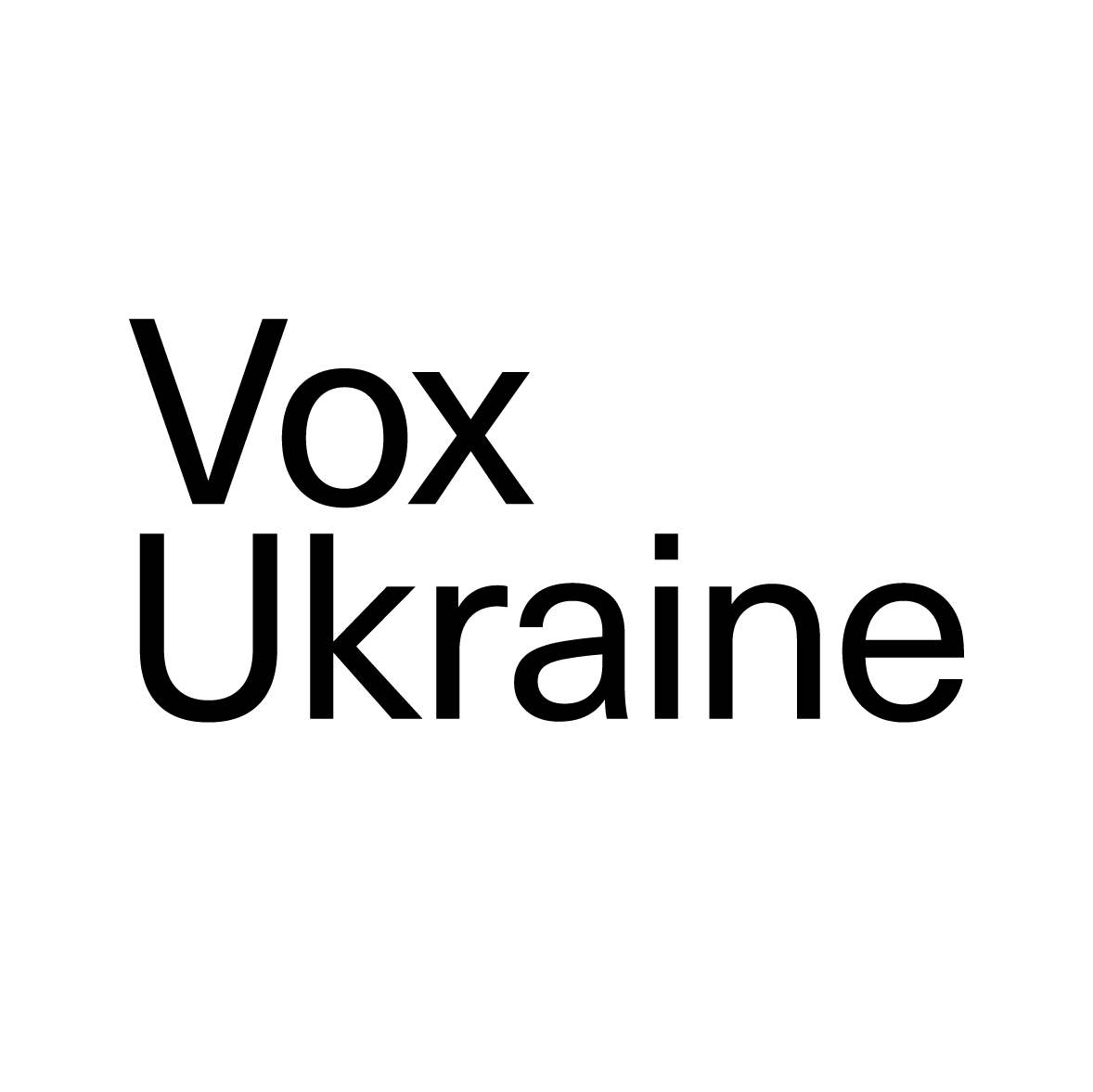Prologue, or instead of a Spoonful of Tar. … Although this analysis presents a much more optimistic picture than most of the comments on blogs and in social networks, but still, even one of the most developed sections (VII on Energy Independence) which received a positive evaluation – received though offer it as a “credit for the future”. An attentive reader may notice that even though the items 6.2-6.4 offer reasonable pro-market measures, in essence, mean that coal industry enterprises will be subsidized during 2015-2019yy, thus enriching the occupants and rent seekers traditionally earning on these subsidies.
The VoxUkraine team has looked at the draft of the coalition agreement and evaluated the sections of the agreement on the “Pass”/ “Conditional Pass” / “Water”/ “Fail” scale.
Summary. We assign PASS to 3 sections out of 17, and CONDITIONAL PASS to 6 sections out of 17. We find that the draft does not have a coherent ideology and that many sections advocate Soviet style command economy approach to reforms, while only few sections address the structural causes of the problems in Ukraine. Interestingly, the best sections are those on Energy Independence, National Security, and Law Enforcement, which are the key areas for the survival of the sovereignty of Ukraine. Some other good areas are based on the EU directives (see ecology, e.g.). The less pressing areas offer a more depressing picture. This gives support to the argument that the change for the better in Ukraine can come only because of the external pressure to the state. The sections that are supposed to respond to domestic challenges such as social sphere, public utility services, and healthcare are low quality. Thus, new political establishment of Ukraine is in its infancy, is very fragile, and needs to be supported in all possible ways to facilitate transformation from a mechanism that responds (often ineffectively) to external pressures from Russia and the West to a healthy constantly evolving political system that independently and proactively addresses the key problems of Ukraine citizens.
Main body. We now provide a more detailed description of our evaluation.
PASS is assigned to sections that have expressed a clear position consistent with institutional and economic reforms that can improve institutions and state of the country. CONDITIONAL PASS is assigned to sections that can be revised to present a clear and consistent position, but might be short on details or insufficiently systemic and comprehensive in the current form. FAIL is assigned to sections that are self-contradictory or suggest ineffective, counterproductive, or infeasible policies. WATER means that the section does not contain sufficient amount of substantive material.
In addition, each section gives a brief description of its underlying ideology, our comment on plausibility of success, and, where available, the most interesting phrase.
We also present our assessment of whether proposed changes are consistent with deregulation, transparency, and anti-corruption, which are key objectives proclaimed by many political parties. Deregulation is supposed to decrease the compliance cost for the business and thus spur economic growth. Specifically, for each section we list the number of new agencies and bodies to be created and the number to be dissolved. We rate transparency and anti-corruption criteria for each section by assessing whether proposed actions and stated vision are likely to result in more transparency and less corruption in the area. We assign “more”, “unchanged”, or “less” regarding effect on corruption and transparency.
- Excluding the section on police, which is difficult to analyze, the draft proposes to create six new agencies and reform one. No agencies, except those to be reformed, will be dissolved. This can hardly be called a success of deregulation. Interestingly, the sections with better grades tend to propose fewer new agencies.
- Anti-corruption and transparency. In terms of tackling corruption and promoting greater transparency, draft agreement envisages mixed result. While there is a clearer trend in transparency effort, corruption lacks decisive frontal action. Eight sections could potentially result in more transparency, and only six could be effective in restraining corruption. At the same time, there are four areas, which could lead to just opposite – more corruption, while one section could deprive transparency.
The coalition agreement lacks consistency in what country the coalition is going to build. Cross-cutting ideology is mixed. Some sections are based on liberal market ideology, removing pricing distortions such as taxes, (cross) subsidies, preferential pricing, and minimizing the role of the government. At the same time, other sections advocate for increased government involvement and regulation. The most liberal section is on energy independence, while the most interventionist sections are economic growth, agriculture, and social. The overreaching ideology of the drafters of the coalitional agreement continues to be rooted in command economy approach and is far from free market ideology, party explaining the difficulty with progress of reforms in Ukraine.
The coherency of the coalition agreement is uneven. Five sections are so vague or low quality that we have been unable to assign passing or failing grade. This reflects either a serious conflict among future members of the coalition, laziness, or lack of competence. Others are full with nuanced details, baby-step actions and lack clear vision. On the other hand, there are several excellent sections. The three best sections, which obtained PASS grade, in our opinion are those on national security, energy independence, and law enforcement (police). They offer specific, high-quality suggestions. The other sections with CONDITIONAL PASS grade could be improved by taking more radical, bolder measures, being more specific, or addressing the causes of the problems rather than treating their symptoms.
There are 17 sections total. The grades are:
- PASS
- law enforcement,
- national security,
- energy independence
- CONDITIONAL PASS
- anticorruption,
- decentralization,
- regulation and competition policy,
- infrastructure and transportation,
- electoral reform,
- ecology
- WATER
- Judicial,
- healthcare,
- communal service (ЖКХ),
- finance,
- FAIL
- agriculture,
- social,
- constitutional reform, economic growth
1. Anticorruption. CONDITIONAL PASS (a coherent set of specific measures that, provided proper enforcement, can decrease corruption).
Ideology: stricter punishment and control; more transparency.
Feasibility and risks: Stricter punishment is insufficient. Tackling corruption requires addressing its deeper causes such as distorted incentives in the economy.
Suggestion: The document can benefit from expressing a clear and comprehensive approach to removing incentive distortions that lead to corruption. The main way to fight corruption is to create competition in services, provide clear criteria for evaluations, maximize transparency and minimize contact between officials and customers.
Interesting phrase: “Постійно. Ліквідація корупційних схем у державному секторі.”
New agencies: 3
Transparency: more
Corruption: less
2. Judicial. WATER (plenty of declarations about how everything will improve, with almost no specifics).
Ideology: political independence of judicial; focus on professional qualifications.
Feasibility and risks: Program lacks specifics. High risks due to resistance of vested interests. In addition, independence can protect corrupt judicial system from accountability. This is likely in Ukraine, and has occurred in other countries in Central Europe (Balkans).
Suggestion: why not elect judges if we already elect the parliament and the president, and given that elections and revolutions appear to be the only mechanism that can discipline people in power?
Interesting phrase: “Процесуальні норми різних видів судочинства будуть уніфіковані настільки, наскільки це можливо;”
New agencies: 1; agencies to be dissolved: 0.
Transparency: unchanged
Corruption: more
3. Decentralization. CONDITIONAL PASS (a rather comprehensive set of specific measures).
Ideology: clarifying and separating responsibilities; removing opportunities for abuse of power; delegating decision power to those affected by the decisions.
Feasibility and risks: Unclear; technically this is a consistent set of changes that can be implemented. The difficulty is political resistance.
Suggestion: why does not the president delegate the rights to appoint the heads of local state administrations to the local councils? That would implement decentralization reform instantly.
Interesting phrase: “Усунення нехарактерних для державного бюджету видатків;”
New agencies: 1; agencies to be dissolved: 0 (some agencies are reformed – state administrations will become prefectures)
Transparency: more
Corruption: unchanged
4. Law enforcement (police). PASS (a rather comprehensive set of specific measures).
Ideology: clarifying and separating responsibilities; removing opportunities for abuse of power.
Feasibility and risks: Technically possible. There might be political resistance from the law enforcement agencies as many vested interests stand to lose their power and source of corrupt income.
Suggestion: How about directly elected sheriffs in the wild East of Ukraine and elsewhere?
Interesting phrase: NONE, and this is a good thing.
New agencies: the net change is unclear since many agencies are removed or reformed and some new are created. In general, this section is bold, and if implemented can be a major success
Transparency: unchanged
Corruption: unchanged
5. National Security. PASS (a rather comprehensive set of specific and bold measures, notwithstanding a good amount of water as well).
Ideology: strengthening military, intelligence, and counterinsurgency capabilities.
Feasibility and risks: Good/low.
Suggestion: Ukraine should develop a proper counterinsurgency doctrine that will include measures to secure support of the local population in the areas under the government control that can be subject to diversion activities of insurgents, such as Kharkiv, Dnepropetrovsk, Odesa, and other regions with substantive pro-separatist/Russian sentiment.
Interesting phrase: “Впровадження дієвих механізмів фінансування будівництва житла для військовослужбовців (службового та постійного); (ІІ кв. 2015);”
New agencies: 1; agencies to be dissolved: 1 (an agency is reformed)
Transparency: unchanged
Corruption: more
6. Healthcare. WATER (this is a set of random policy suggestions; the key problem of corruption and lack of state funding are not addressed).
Ideology: command economy style of regulation of the industry.
Feasibility and risks: not applicable
Suggestion: why not encourage competition among medical institutions and simplify and legalize private payments for the services to minimize corruption and improve transparency?
Interesting phrase: “Заборонити рекламу лікарських засобів;”
New agencies: 0; agencies to be dissolved: 0
Transparency: unchanged
Corruption: unchanged
7. Regulation and competition policy. CONDITIONAL PASS (water except for specific suggestions on tax reform, anti-monopoly committee, and EU association)
Ideology: Deregulation, decreasing cost of compliance for business, somewhat streamlining anti-monopoly procedures.
Feasibility and risks: Good / vested interest resistance.
Suggestion: why not be more specific and bold about deregulation measures and anti-monopoly policies? A good thing: there are no growth points and specific industry interests did not distort the content too much.
Interesting phrase: “Ініціювання укладення договорів про уникнення подвійного оподаткування, зокрема з країнами, які внесені до переліку офшорних зон;”
New agencies: 1 (but might be helpful for business, unless will be used for preferential treatment); agencies to be dissolved: 0
Transparency: more
Corruption: less
8. Energy independence. PASS (a set of specific measures that can improve market efficiency, and reduce corruption)
Ideology: Deregulation, increased transparency, Naftogaz reform, liberalization of markets, encouraging investment, removing tax, subsidy, and price control distortions.
Feasibility and risks: Good / vested interest resistance.
Suggestion: Why not bankrupt Nafotgaz and build new agencies from scratch?
Interesting phrase: None
New agencies: 0; agencies to be dissolved: 0
Transparency: more
Corruption: less
9. Utilities (public communal service). WATER (very spotty and often non-specific)
Ideology: baby steps in the direction of removing distortions in pricing and formalizing property rights; in summary no clear vision.
Feasibility and risks: not applicable
Suggestion: Why not formalize property rights and remove pricing distortions?
Interesting phrase: “Забезпечення дотримання вимог Директив ЄС про полігони відходів в системі ціноутворення на захоронення відходів.”
New agencies: 0; agencies to be dissolved: 0
Transparency: unchanged
Corruption: unchanged
10. Finance. WATER (just water, except for a couple of very nuanced positions in 2.3, and some of which are questionable)
Ideology: not applicable
Feasibility and risks: Unclear, as many of policy actions belong to the authority of the NBU and other regulator agencies, rather than to the Rada.
Suggestion: Why not remove this section if there is no specific position?
Interesting phrase: “удосконалення механізмів запобігання рейдерству”
New agencies: 0; agencies to be dissolved: 0
Transparency: unchanged
Corruption: unchanged
11. Infrastructure and transportation. CONDITIONAL PASS (somewhat short on details, but offers a number of specific steps and is backed by sound underlying principles)
Ideology: deregulate, remove pricing distortions, privatize some, keep state control over the main infrastructure
Feasibility and risks: Good / vested interests resistance
Suggestion: automatic fines for traffic violations are cool! We should do more of formalization of this type.
Interesting phrase: “Перегляд діючих програм з підвищення безпеки дорожнього руху та прийняття скоординованого плану дій на 5 років з забезпечення безпеки дорожнього руху; (2015 1 кв.)”
New agencies: 1; agencies to be dissolved: 0
Transparency: more*
Corruption: less*
* The process of reorganization of Ukrzaliznytsya and divesting its assets is welcome, but its implementation could involve more corruption and less transparency.
12. Agriculture. FAIL (although the proposed measure are quite good, including audit and formalization of usage rights, the section stops short of trading land, leaving us in the Soviet Union era)
Ideology: regulate and control, subsidies, despite statements to the opposite, such as deregulation and streamlining permits
Feasibility and risks: Unlikely to solve the key problems caused by surrogate institutions substituting for formal property rights
Suggestion: why not admit that the land is an asset in the market economy and allow trade? Or should we wait for 20 more years and several more revolutions?
Interesting phrase: “Розробка концепції реформування аграрної науки на основі інноваційної моделі з метою підвищення її ефективності, передбачивши, зокрема, збереження державного фінансування фундаментальних наукових досліджень і досліджень у сфері збереження навколишнього природного середовища, та скорочення фінансування прикладних досліджень, приватизацію (із паюванням земель між працівниками та жителями прилеглих сільських населених пунктів) та ліквідацію неефективних підприємств, установ та організацій НААН (ІV квартал 2015 року).”
New agencies: 0; agencies to be dissolved: 0
Transparency: unchanged
Corruption: more
13. Social. FAIL (see the underlying ideology below)
Ideology: (post)-Soviet Union heavy involvement of the state into educational, pension, and other social spheres
Feasibility and risks: Unlikely to resolve the issues of quality and lack of funding
Suggestion: why not privatize higher educational institutions and make them compete? If the government would like to invest into education, it can provide fellowships and student loans directly to the students. Why not to monetize social subsidies and perks rather than to keep them in-kind which promotes corruption?
Interesting phrase: “Заохочення державою читання, книговидання і книгорозповсюдження, в т.ч. шляхом створення розгалуженої мережі книжкової торгівлі та збереження податкових пільг книговидавничій галузі. Розробка програми підтримки читання;”
New agencies: 0; agencies to be dissolved: 0
Transparency: unchanged
Corruption: less
14. Economic growth. FAIL (content is water, ideology is anti-market)
Ideology: identifying pockets of growth instead of letting the market to determine winners and losers; the government will be involved in determining which industries to promote. This will create new distortions bringing us to square one.
Feasibility and risks: not applicable
Suggestion: why don’t we let markets to determine the growth industries and focus on providing rules of the games that secure investment and minimize cost of doing business in Ukraine? What if the new miracle industry for Ukraine is acquaculture (fish farming) rather than agriculture, or what if it is robotics rather than IT? How come a bureaucrat in a government agency can be a better judge of this than the investors?
Interesting phrase: None
New agencies: 0; agencies to be dissolved: 0
Transparency: less
Corruption: more
15. Electoral reform. CONDITIONAL PASS (one specific proposal of moving to proportional system with open party lists)
Ideology: Give voters more choice and control as well as limit power of party bosses.
Feasibility and risks: unclear, given vested interests
Suggestion: What about specific measures controlling financing of political parties? Or will money continue to buy influence in Ukraine? What about the equal access of parties to financing from budget? Parties should compete in ideology and meritocracy, rather than in the number of bill-boards and presences on TV-shows. Also, why not to reduce the number of MPs to 300? This will save budget money for other purposes.
Interesting phrase: “Зменшення граничної кількості депутатів місцевих рад;”
New agencies: 0; agencies to be dissolved: 0
Transparency: more
Corruption: unchanged
16. Constitutional reform. FAIL (why is it even there if absolutely no constitutional questions are addressed?)
Ideology: kick the can down the road
Feasibility and risks: not applicable
Suggestion: Can Ukrainians form a National Constitutional Convention and determine in an open and legitimate way the structure of Constitution of Ukraine? If we don’t trust politicians, why do they decide on Constitution?
Interesting phrase: “Створення Тимчасової спеціальної комісії Верховної Ради України (далі ‐ ТСК) для підготовки узгоджених Коаліцією змін до Конституції України. ТСК має діяти на засадах відкритості, гласності, професіоналізму, науковості, колегіальності та незалежності у прийнятті рішень”
New agencies: 0; agencies to be dissolved: 0
Transparency: more
Corruption: unchanged
17. Ecology. CONDITIONAL PASS
Ideology: copy EC directives
Feasibility and risks: specific list of EU directives: technically feasible. Major risks are in implementation of new regulations
Suggestion: why don’t we delegate regulation directly to the European Union?
Interesting phrase: “Розробити та запровадити модель управління водними ресурсами з врахуванням басейнового принципу управління та гідрографічного районування території”
New agencies: 0; agencies to be dissolved: 0
Transparency: more
Corruption: less
Also published in Ліга.Бизнес
Attention
The authors do not work for, consult to, own shares in or receive funding from any company or organization that would benefit from this article, and have no relevant affiliations





